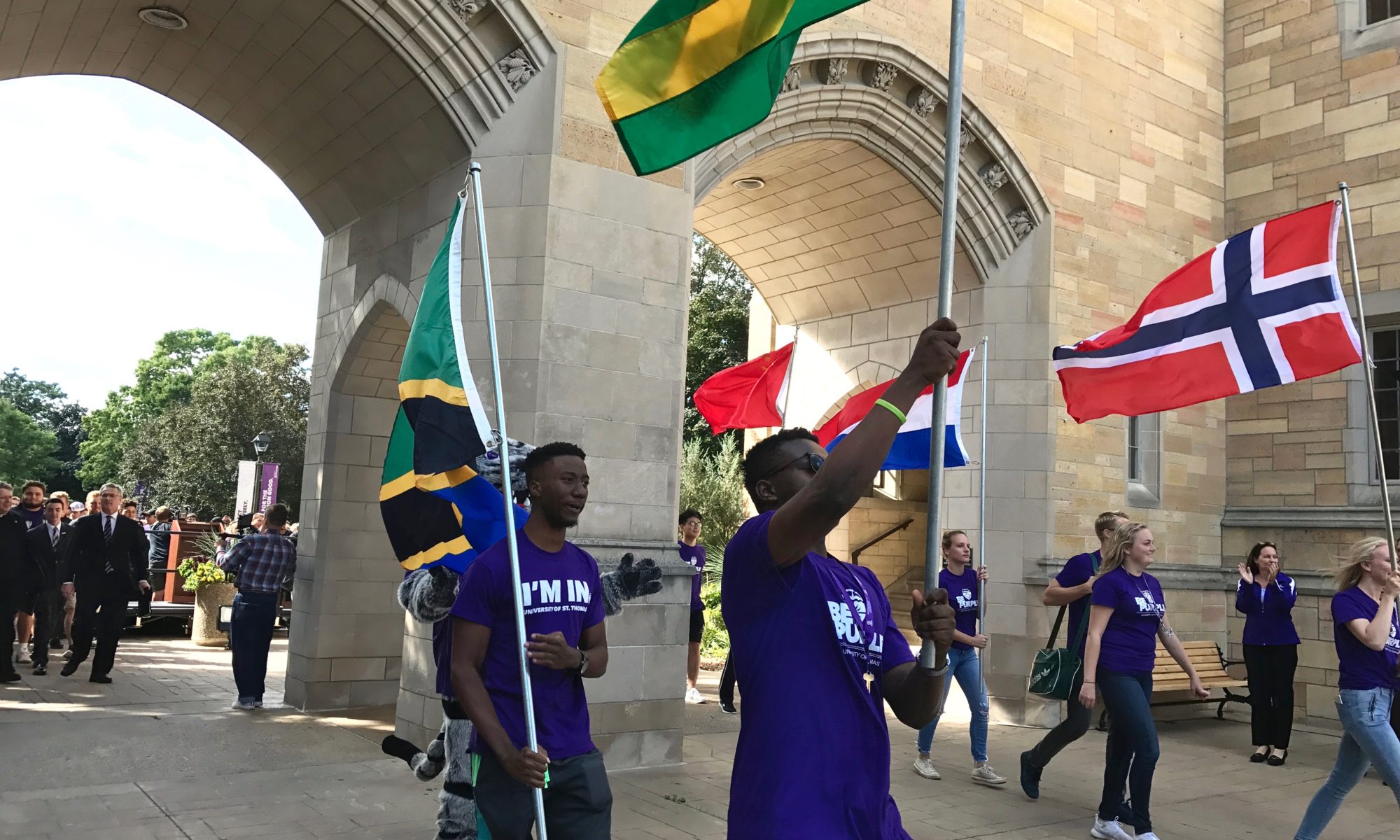St. Thomas has maintained normal international enrollment numbers this spring semester, opposing universities’ averages across the country, but St. Thomas international students struggle with travel restrictions, time difference problems, visa delays and COVID-19 anxiety.
Although international student enrollment has plummeted around the U.S. during the pandemic, the numbers of St. Thomas’ incoming foreign students defy the national trend. Fourteen new students from abroad joined the university’s academic body this spring semester, roughly the same number as spring 2020.
Time differences have posed a great logistical problem to international students who are outside of the U.S. and take online courses only. Hao Taing, an international student from Cambodia, is currently 12 hours ahead of Minnesota.
Registering for classes that begin at a reasonable time, are fully online and fit his requirements was challenging for Taing. “Some of the classes were good, but were full,” Taing said. “Some of the classes were good, but started at three in the morning.”
For the second half of spring semester, Taing will enroll in classes that begin as early as 4 a.m. and end as late as 12:45 a.m. Indochina Time. He recognizes that his irregular sleep schedule has been a cause of increased tension in his routine.
“I’m still really fuzzy and overwhelmed with the time zone,” Taing said. “Zoom meetings are good, but if it’s three in the morning, I would rather sleep.”
Chris Stocken, a first-year student from South Africa, who is banned from entering the U.S. after President Biden ordered a travel ban on Jan. 25, also reported uncertainty and anxiety issues originating from remote learning.
“It is just stressful and strange having to do everything online,” Stocken said, who started college online in the fall and continued taking courses from his home in South Africa during spring semester.
“We were very worried of me actually getting corona in the U.S. because I have asthma,” Stocken said. “I don’t think I would have been able to make it to the U.S. even if I didn’t have pre-existing conditions because of the travel restrictions.”
President Biden’s proclamation suspended the entry of most non-U.S. citizens traveling from South Africa, the Schengen Area, the United Kingdom, Ireland and Brazil.
Besides travel bans, international students also face other legal issues preventing them from traveling to the U.S.
Lopez Otieno, a Kenyan first-year student at St. Thomas, experienced complications getting his visa, a requirement for international students in the U.S. The last step of a visa process is to attend an interview in a U.S. consulate or embassy in person.
However, since U.S. consulates and embassies were closed in Kenya due to COVID-19, Otieno was unable to get her visa and travel to the U.S. before classes started in fall.
Otieno was only interviewed in early January when the U.S. embassies and consulates opened in Kenya. She traveled to the U.S. almost immediately after receiving her visa, on Jan. 9.
“It was quite overwhelming, but I am glad I did it,” Lopez said. “I did not give up.”
During spring semester, a total of 25 St. Thomas international students reported to be out of the U.S. However, Ethan Olson, the St. Thomas associate director of international admissions, says it’s not in the university’s best interest to keep it that way.
“I would say that it’s a priority for us to get international students back to campus,” Olson said. “We don’t want to be one of those universities that its identity is online learning.”
The St. Thomas Office for International Students and Scholars keeps up with the international community by giving assistance whenever necessary. However, the pandemic interfered with one of the main goals of having international students studying at St. Thomas.
“Obviously, a big part of the reason why we want to recruit international students is to have them on campus, so that their cultures and experiences are going to influence everybody,” Olson said. “In addition, of course, for them to learn about American culture as well.”
Although gatherings and social events are restricted, hindering the exchange of experiences between domestic and international students, circumstances may change next semester due to vaccination outcomes.
Olson is “cautiously optimistic” for international admissions in fall 2021. “If all goes well, we are looking at a really good fall for international undergraduates.”
Luana Karl can be reached at karl2414@stthomas.edu.
Owen Larson can be reached at orlarson@stthomas.edu.
Molly Heimel can be reached at heim8394@stthomas.edu.



